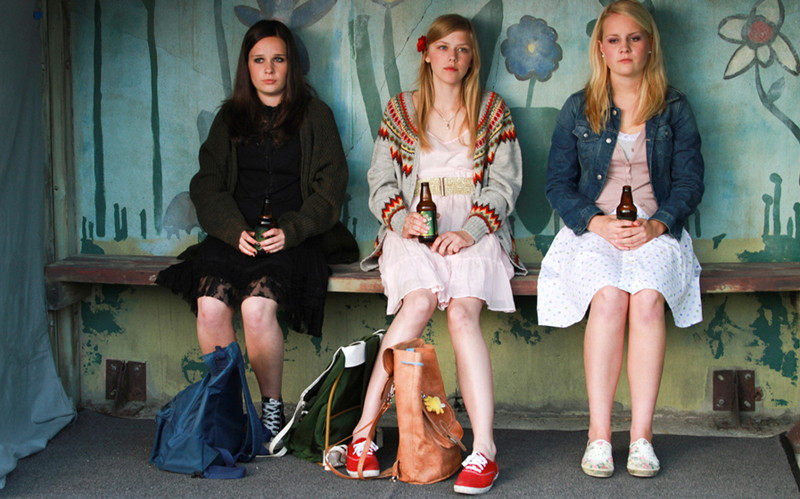Girls do it, too
Refreshing Norwegian film chronicles teenage girl’s sexual awakening
Her mom doesn’t understand her, she’s crushing on a boy who is out of her league and she hates her small rural Norwegian town.
Oh, and she’s obsessed with sex.
Adapted from the novel by Olaug Nilssen, Turn Me On, Dammit! follows Alma (played by then 17-year-old Helene Bergsholm in her debut role) through her fantasy-filled days, while she racks up her mother’s phone bill calling Stiig at Wet Wild Dreams, and pictures every man she comes across lusting after her.
Writer and director Jannicke Systad Jacobsen’s debut film opens with one of the most awkward and funny scenes that I’m sure most of us can relate to, though few would actually admit it.
Alma’s world crashes in around her when, during a dance at the youth centre, the boy of her dreams, Artur, makes a lewd advance on Alma. Of course this is done in private, so when Alma tells her friends, sisters Saralou and Ingrid, they do not believe her, and Artur adamantly denies the whole thing.
Out of jealousy, lipgloss-loving queen bee Ingrid spreads a rumour about Alma, and soon enough Alma is known as “Dick-Alma” around the small town, and becomes a social outcast at school.
Things go further south for Alma when her mother receives the phone bill and Alma cops to making the calls to the sex chat line. (“I’m horny!” she yells at her mom.) To pay back the bill, her mother gets her a job at the local grocery store, working for her former friends` father.
There are many great aspects of this film. It is refreshing to see a teen “sex comedy” (the film isn’t quite a comedy, with few laugh-out-loud moments) with a female protagonist. Females are sexual beings too, but very rarely are they portrayed equally to teen boys in film.
My qualms come from the side stories of Saralou and Ingrid, which aren’t entirely fleshed out and are unnecessary (like Sara’s fascination with abolishing capital punishment in Texas and writing to death row inmates). Also, the ending wraps up too nicely.
But the cinematography by Marianne Bakke is beautiful and moody, and reminiscent of the tone of fellow Norwegian film The Man Who Loved Yngwe from 2008. Turn Me On fits right in to the Euro Indie category.







